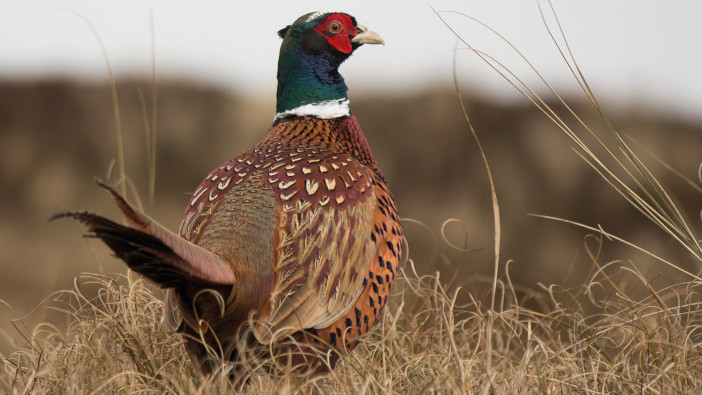Bird charity the RSPB has called for an immediate ban on the release of captive bred gamebirds and mallards for shooting in the UK this year, to help limit the spread of avian influenza.
Claire Smith, senior policy officer, said the RSPB wanted the UK and devolved governments and the shooting industry to take a precautionary approach to limit the spread of avian influenza in wild birds and reduce the risk of “viral re-assortment” leading to new strains of the disease.
Every year over 40 million pheasants and red-legged partridges and 2.6 million mallard ducks are reared in captivity and then released into the UK countryside to be shot. Many of these birds are imported from Europe then held in pens to mature prior to release. Others are reared in game farms across the UK. Releases will start in July and August but prior to that birds may be moved from game farms to release pens which often have access to wild birds.
Following the lifting of the housing order in England and Wales gamebirds are now permitted to be released across the country, with the exception of temporary 3km and 10km disease control zones put in place following an outbreak in captive birds. Additionally, last week Natural England announced restrictions on releasing gamebirds on or near to protected areas to reduce the avian influenza risk to birds of conservation concern breeding on these sites.
RSPB said these restrictions, which only apply in England, do not go far enough.
Defra’s risk assessment on the spread of Highly Pathogenic Avian Influenza (HPAI) concluded the release of captive bred pheasants had a very high likelihood of infecting one or more wild birds with HPAI near release sites and that “that the release of these gamebirds could provide an additional source of susceptible birds which could serve as a reservoir of H5N1 and present a mechanism to maintain the virus in Great Britain over the late summer and early autumn in the months leading up to the arrival of large numbers of migratory wild birds.”
RSPB said it also has concerns about the role of mallard releases in the spread of HPAI. Mallards are particularly susceptible to infection with H5N1 and ducks are known to shed the virus for long periods.
Since 2021 there have been 10 outbreaks in gamebird rearing premises. One in Scotland, five in England and four in Wales.
Defra’s statistics on HPAI in wild birds show 70 positive tests in Pheasants in 2022 from August to December, with a peak occurring in October.


